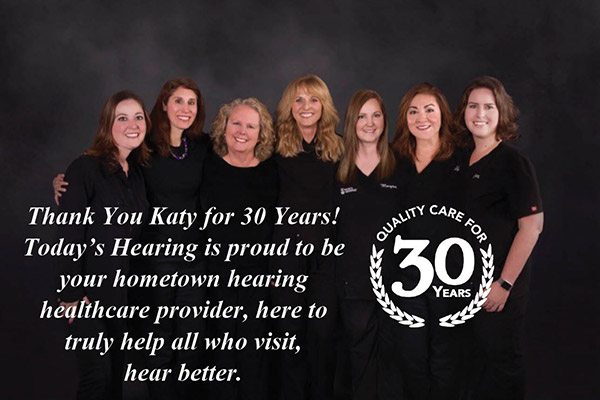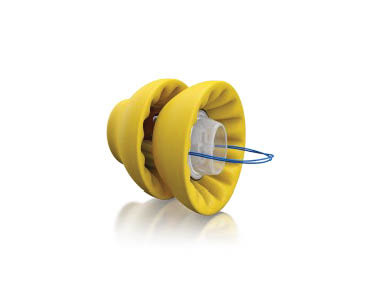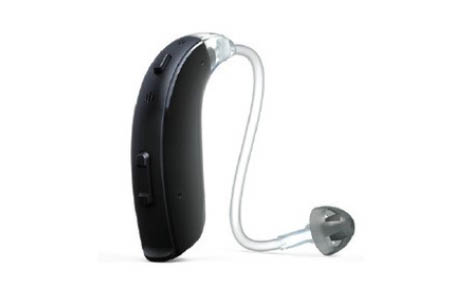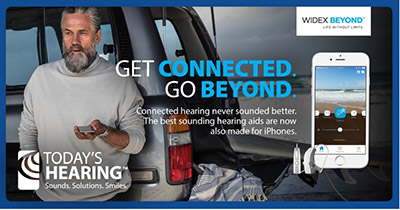
Happy New Year!! We hope the holidays were good to you and your New Year is looking bright. With planning your health and fitness goals for the year, please remember to include healthy hearing in your plan. Early hearing loss detection is key to preventing further damage. With so much health information on the web, it is easy to want to self-diagnose. However, we cannot test our own hearing accurately from an online or phone test. If you suspect you have hearing loss, begin with a hearing test from an audiologist. An audiologist will review your results and recommend the best hearing technology that’s right for you and your lifestyle. Technology today includes smart hearing aids, rechargeable hearing aids, and invisible hearing aids, to name a few.
If tech is not your thing, we have hearing aids for you too. Whatever your preference, the key is to get your hearing checked and get on the road to better hearing. Cheers to good health and better hearing!
The Invisible Hearing Aid

Lyric is the world’s first and only 100% invisible hearing aid.
It’s been called the contact lens for the ear. This small hearing device fits inside the canal of the ear. It can be worn 24/7 through all normal daily activities such as exercising, showering, talking on the phone, using headphones and even sleeping. There’s no need to change batteries or maintain the device. Every 6 – 8 weeks come in for a 15-minute appointment to have it replaced. Call to find out if you’re a candidate for the Lyric device and start your 30-day risk-free trial.

Hearing aids can dramatically improve your ability to hear and carry on a normal life. Today there are many choices in hearing aid technology at various price points to suit your needs and budget. However, it can be overwhelming with the many different styles, types, and models to choose from. How do you know which hearing aid is right for you? This is where the expert comes in. An audiologist is the professional who specializes in evaluating and treating people with hearing loss. After testing and consulting with you he/she will recommend a device best suited for your hearing needs and lifestyle. It doesn’t necessarily mean you’ll have to buy the most expensive devices or the latest technology. A good audiologist will recommend a device that’s best for YOU.

Healthy hearing is a part of one’s wellness, and it’s a journey. Don’t let the other guys steer you wrong. Hearing aids should come with at least a 30-day guarantee so that if you’re not completely satisfied you have the option of exchanging the devices or returning them for a refund. They should also have a good warranty period with free supplies and service as long as your warranty is active. Once you’re on the road to better hearing, it’s recommended to have your hearing checked annually and your devices cleaned and checked periodically to keep them operating to their full potential.

Heart Health and Hearing Loss
February is American Heart Month
Cardiovascular disease is a very serious public health issue in America. New evidence shows a link between poor heart health and hearing loss. The reason for this? The inner ear is extremely sensitive to blood flow, so obstructions in the arteries and veins – symptoms of impaired cardiovascular health – can impact the peripheral and central auditory systems, leading to hearing impairment. When the heart is healthy and the flow of blood is unimpeded, hearing problems are fewer.
The cochlea, a fluid-filled tube in the inner ear that translates sound into nerve impulses, fails to function properly when damaged or subjected to decreased blood flow. A study of 1,600 patients with a history of cardiovascular disease showed they were 54% more likely to experience impaired cochlear function, further evidence of how essential blood flow is to good hearing.
Maintaining a healthy lifestyle will not only add years to your lifespan, but will reduce your odds of developing hearing loss. Doctors recommend taking preventative measures such as eating healthier, losing weight, quitting smoking, and maintaining a healthy blood pressure. Individuals with hearing loss are encouraged to undergo cardiovascular screening to determine whether there is an increased health risk. And patients already diagnosed with heart disease should consider a hearing evaluation by an audiologist. Hearing loss can isolate one from family and friends, so make sure if you or a loved one has a history of heart-related illness they contact us as soon as possible.


